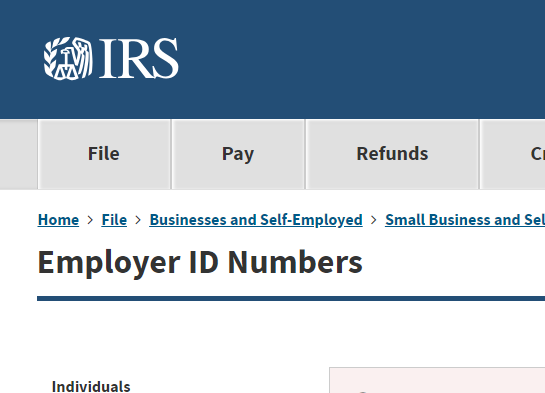
EIN Becomes a Standard Identifier

In a final rule published in the May 31, 2002 Federal Register, CMS (The Centers For Medicare & Medicaid Services) established the Employer Identification Number (EIN) as the standard unique identifier for filing many healthcare transactions. The odds are great that you know what an EIN (or FEIN, by adding “Federal”) is, because either you have one, or the clinic or other entity for which you are employed surely does. If not, you may get one by filling out an IRS Form SS-4 and faxing it to the IRS in Cincinnati at 859-669-5760. A number is assigned and faxed back to you in a few days. In any event, the CMS action is in response to a HIPAA mandate and is intended to simplify and streamline filings.
Here is the May 28, 2002 Press Release from CMS Office of Public Affairs on the matter:
CMS ANNOUNCES STANDARD UNIQUE EMPLOYER IDENTIFIER FOR USE IN STANDARD TRANSACTIONS UNDER HIPAA
The Centers for Medicare & Medicaid Services (CMS) today announced the adoption of the Employer Identification Number (EIN) as the standard unique identifier for employers in the filing and processing of health care claims and other transactions. The standard unique identifier, mandated by the Health Insurance Portability and Accountability Act of 1996 (HIPAA), will help eliminate paperwork, simplify activities such as enrollment in health plans and payment of health insurance premiums and save money overall.
“This is another important step in our implementation of HIPAA that will make health insurance transactions easier and more efficient,” said CMS Administrator Tom Scully, “not just for Medicare but for other federal health programs and the private health insurance industry as well as those who provide the nation’s health care.”
The final rule establishing the EIN as a standard identifier will be published in the Federal Register on May 31. The effective date of this final rule is July 30, 2002.
The EIN is issued and maintained by the Internal Revenue Service (IRS). Businesses that pay wages to employees already have EINs.
As a result of today’s announcement, the EIN will be used in certain transactions for which the Department of Health and Human Services (HHS) has adopted standards under HIPAA. For example, the EIN would be used to enroll an employee in a health plan. Health plans, health care clearinghouses, and health care providers that conduct standard electronic transactions will be required to use the EIN if the employer needs to be identified in the transaction.
Until now, health plans, health care clearinghouses, and health care providers may have used different identification numbers to identify the same employer when they conduct business. Having multiple identifiers for a single employer slows activities such as health plan enrollment and premium payment.
The final rule adopting the employer identification number by HHS is one of several regulations implementing the Administrative Simplification provisions of HIPAA. CMS, an HHS agency, also has proposed rules that would adopt standard identifiers for health care providers and security standards to protect the transmission of and access to health care information. CMS will propose standard identifiers for health plans and standards for health care claims attachments as required by HIPAA.
In August 2000, HHS adopted standard formats to streamline the processing of health care claims, including standards for electronic transactions and code sets. In December 2000, HHS adopted standards for privacy of individually identifiable health information and in March 2002 proposed modifications of certain of those privacy standards….
For more information, contact the CMS Office of Public Affairs at 202-690-6145.
Apply for your EIN here.

















